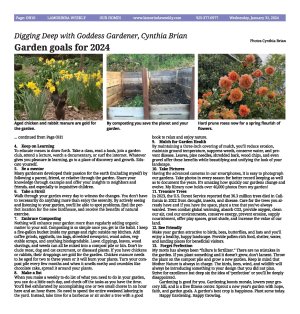|
|
Published January 31st, 2024
|
Digging Deep with Goddess Gardener, Cynthia Brian
|
| Garden goals for 2024 |
| By Cynthia Brian |
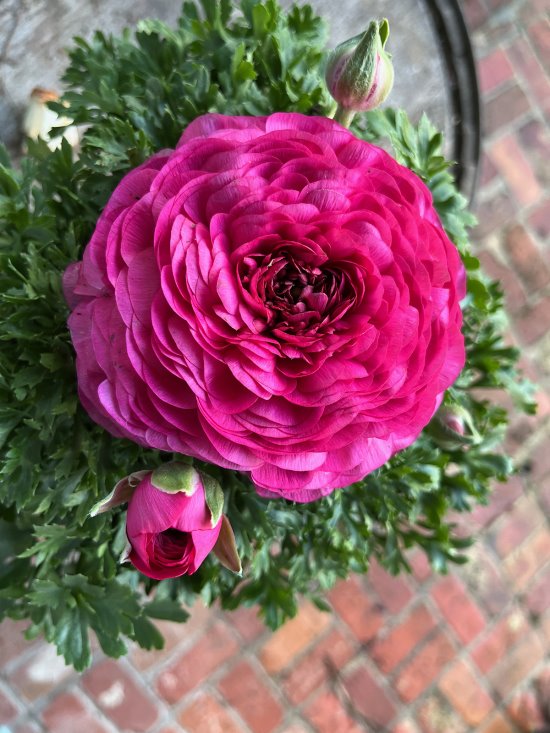 |
| Ranunculus adds color and texture in February gardens. Photos Cynthia Brian |
Hope and faith flower from the cheerful seeds of the old year to the sprouting garden of the new year's dawn. ~Terri Guillemets
 By February, most of the resolutions made on Jan. 1 have been waylaid. Our dreams of losing weight, becoming more organized, and being better might have already turned into nightmares. If we want to be triumphant in life, we need to make conscientious changes, or else we are doomed to stagnation. February is the perfect month to create our year's gardening goals. If we do a little at a time, step by step, and commit to success, we will achieve our landscaping goals. There is a saying, "By the inch, it's a cinch." Choose one or two goals per month and make it happen. The only way to predict the future is to create it. To become a better gardener, we need to be flexible, adopt innovative ideas, and learn from our mistakes. Whatever your level of gardening expertise, you will benefit from several of these suggestions. Get going, get growing.
By February, most of the resolutions made on Jan. 1 have been waylaid. Our dreams of losing weight, becoming more organized, and being better might have already turned into nightmares. If we want to be triumphant in life, we need to make conscientious changes, or else we are doomed to stagnation. February is the perfect month to create our year's gardening goals. If we do a little at a time, step by step, and commit to success, we will achieve our landscaping goals. There is a saying, "By the inch, it's a cinch." Choose one or two goals per month and make it happen. The only way to predict the future is to create it. To become a better gardener, we need to be flexible, adopt innovative ideas, and learn from our mistakes. Whatever your level of gardening expertise, you will benefit from several of these suggestions. Get going, get growing.
 1. Keep Track
1. Keep Track
 Whether you write in a notebook or create a digital diary, journaling about what's happening in your landscape will be a valuable resource.
Whether you write in a notebook or create a digital diary, journaling about what's happening in your landscape will be a valuable resource.
 2. Be Inquisitive
2. Be Inquisitive
 Don't be afraid to go to your local nursery to ask questions. Talk to gardeners you admire: your grandmother, a neighbor, or even a total stranger. There are no dumb questions. Gardeners are flattered to share their knowledge.
Don't be afraid to go to your local nursery to ask questions. Talk to gardeners you admire: your grandmother, a neighbor, or even a total stranger. There are no dumb questions. Gardeners are flattered to share their knowledge.
 3. Grow the world.
3. Grow the world.
 Whether it's planting an emerging specimen or experimenting with garden art, try something new. Go global and experience a specimen from another part of the planet.
Whether it's planting an emerging specimen or experimenting with garden art, try something new. Go global and experience a specimen from another part of the planet.
 4. Keep on Learning
4. Keep on Learning
 To educate means to draw forth. Take a class, read a book, join a garden club, attend a lecture, watch a documentary, or surf the internet. Whatever gives you pleasure in learning, go to a place of discovery and growth. Educate yourself.
To educate means to draw forth. Take a class, read a book, join a garden club, attend a lecture, watch a documentary, or surf the internet. Whatever gives you pleasure in learning, go to a place of discovery and growth. Educate yourself.
 5. Be a mentor
5. Be a mentor
 Many gardeners developed their passion for the earth (including myself) by following a parent, friend, or relative through the garden. Share your knowledge through example and offer your insights to neighbors and friends, and especially to inquisitive children.
Many gardeners developed their passion for the earth (including myself) by following a parent, friend, or relative through the garden. Share your knowledge through example and offer your insights to neighbors and friends, and especially to inquisitive children.
 6. Take a Stroll
6. Take a Stroll
 Walk through your garden every day to witness the changes. You don't have to necessarily do anything more than enjoy the serenity. By actively seeing and listening to your garden, you'll be able to spot problems, find the perfect location for the new birdhouse, and receive the benefits of natural exercise.
Walk through your garden every day to witness the changes. You don't have to necessarily do anything more than enjoy the serenity. By actively seeing and listening to your garden, you'll be able to spot problems, find the perfect location for the new birdhouse, and receive the benefits of natural exercise.
 7. Embrace Composting
7. Embrace Composting
 Nothing will enhance your garden more than regularly adding organic matter to your soil. Composting is so simple once you get in the habit. I keep a five-gallon bucket inside my garage and right outside my kitchen. Add coffee grinds, eggshells, tea bags, shredded newsprint, wood ashes, vegetable scraps, and anything biodegradable. Lawn clippings, leaves, wood shavings, and weeds can all be mixed into a compost pile or bin. Don't include meat, dog and cat excrement, or diseased plants. If you have chickens or rabbits, their droppings are gold for the garden. Chicken manure needs to be aged for two to three years or it will burn your plants. Turn your compost pile every few months and when it smells earthy and crumbles like chocolate cake, spread it around your plants.
Nothing will enhance your garden more than regularly adding organic matter to your soil. Composting is so simple once you get in the habit. I keep a five-gallon bucket inside my garage and right outside my kitchen. Add coffee grinds, eggshells, tea bags, shredded newsprint, wood ashes, vegetable scraps, and anything biodegradable. Lawn clippings, leaves, wood shavings, and weeds can all be mixed into a compost pile or bin. Don't include meat, dog and cat excrement, or diseased plants. If you have chickens or rabbits, their droppings are gold for the garden. Chicken manure needs to be aged for two to three years or it will burn your plants. Turn your compost pile every few months and when it smells earthy and crumbles like chocolate cake, spread it around your plants.
 8. Make a list
8. Make a list
 When you make a weekly to-do list of what you need to do in your garden, you can do a little each day, and check off the tasks as you have the time. You'll feel exhilarated by accomplishing one or two small chores in an hour here and an hour there. No need to spend the entire weekend laboring in the yard. Instead, take time for a barbecue or sit under a tree with a good book to relax and enjoy nature.
When you make a weekly to-do list of what you need to do in your garden, you can do a little each day, and check off the tasks as you have the time. You'll feel exhilarated by accomplishing one or two small chores in an hour here and an hour there. No need to spend the entire weekend laboring in the yard. Instead, take time for a barbecue or sit under a tree with a good book to relax and enjoy nature.
 9. Mulch for Garden Health
9. Mulch for Garden Health
 By maintaining a three-inch covering of mulch, you'll reduce erosion, maintain ground temperature, suppress weeds, conserve water, and prevent disease. Leaves, pine needles, shredded bark, wood chips, and even gravel offer these benefits while beautifying and unifying the look of your landscape.
By maintaining a three-inch covering of mulch, you'll reduce erosion, maintain ground temperature, suppress weeds, conserve water, and prevent disease. Leaves, pine needles, shredded bark, wood chips, and even gravel offer these benefits while beautifying and unifying the look of your landscape.
 10. Take Pictures
10. Take Pictures
 Having the advanced cameras in our smartphones, it is easy to photograph our gardens. Take photos in every season for better record keeping as well as to document the years. It's amazing how quickly our gardens change and evolve. My library now holds over 40,000 photos from my garden!
Having the advanced cameras in our smartphones, it is easy to photograph our gardens. Take photos in every season for better record keeping as well as to document the years. It's amazing how quickly our gardens change and evolve. My library now holds over 40,000 photos from my garden!
 11. Treasure Trees
11. Treasure Trees
 In 2023, the U.S. Forest Service reported that 36.3 million trees died in California in 2022 from drought, insects, and disease. Care for the trees you already have and if you have the space, plant a tree that you've always wanted. Trees combat global warming, absorb CO2, provide oxygen, clean our air, cool our environments, conserve energy, prevent erosion, supply nourishment, offer play spaces, grant shade, and increase the value of our land.
In 2023, the U.S. Forest Service reported that 36.3 million trees died in California in 2022 from drought, insects, and disease. Care for the trees you already have and if you have the space, plant a tree that you've always wanted. Trees combat global warming, absorb CO2, provide oxygen, clean our air, cool our environments, conserve energy, prevent erosion, supply nourishment, offer play spaces, grant shade, and increase the value of our land.
 12. Bee Friendly
12. Bee Friendly
 Make your garden attractive to birds, bees, butterflies, and bats and you'll enjoy a healthy, happy landscape. Provide pollen-rich food, shelter, water, and landing places for beneficial visitors.
Make your garden attractive to birds, bees, butterflies, and bats and you'll enjoy a healthy, happy landscape. Provide pollen-rich food, shelter, water, and landing places for beneficial visitors.
 13. Forget Perfection
13. Forget Perfection
 My motto has always been "failure is fertilizer." There are no mistakes in the garden. If you plant something and it doesn't grow, don't lament. Throw the plant on the compost pile and grow a new garden. Keep in mind that Mother Nature is always in charge. The birds, bees, wind, and wildlife will always be introducing something to your design that you did not plan. Strive for excellence but deep six the idea of `perfection' or you'll be deeply disappointed.
My motto has always been "failure is fertilizer." There are no mistakes in the garden. If you plant something and it doesn't grow, don't lament. Throw the plant on the compost pile and grow a new garden. Keep in mind that Mother Nature is always in charge. The birds, bees, wind, and wildlife will always be introducing something to your design that you did not plan. Strive for excellence but deep six the idea of `perfection' or you'll be deeply disappointed.
 Gardening is good for you. Gardening boosts morale, lowers your grocery bill, and is a free fitness center. Sprout a new year's garden with hope, faith, and garden goals. A garden's best crop is happiness. Plant some today.
Gardening is good for you. Gardening boosts morale, lowers your grocery bill, and is a free fitness center. Sprout a new year's garden with hope, faith, and garden goals. A garden's best crop is happiness. Plant some today.
 Happy Gardening. Happy Growing.
Happy Gardening. Happy Growing. |
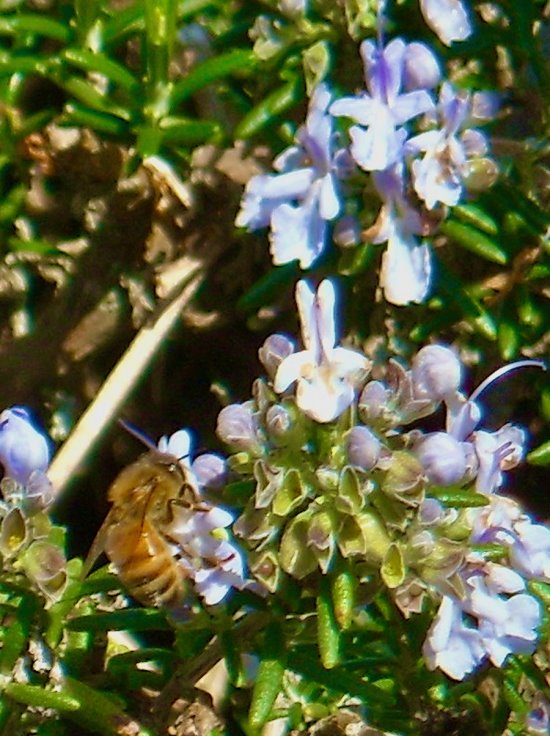 |
| A bee sucks nectar from a blooming rosemary bush. Photos Cynthia Brian |
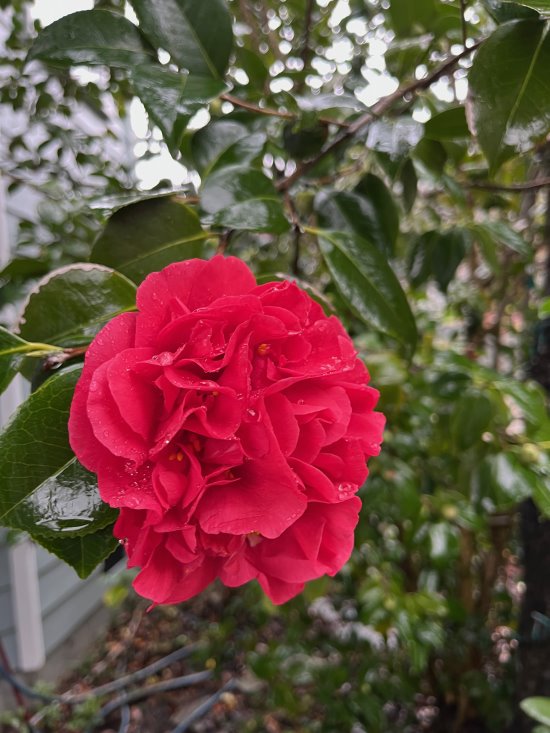 |
| Camellias begin to bloom. Photos Cynthia Brian |
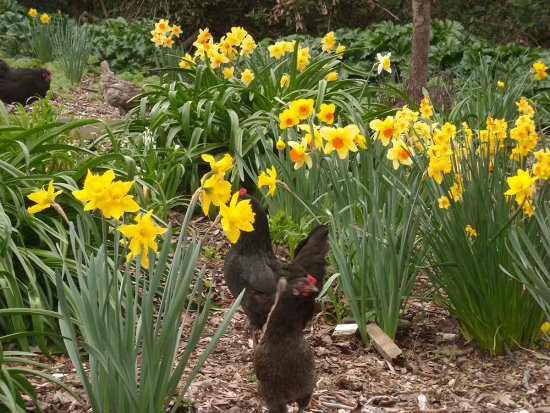 |
| Aged chicken and rabbit manure are gold for the garden. Photos Cynthia Brian |
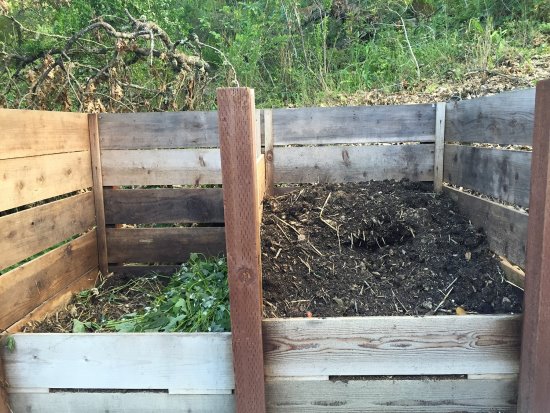 |
| By composting you save the planet and your garden. Photos Cynthia Brian |
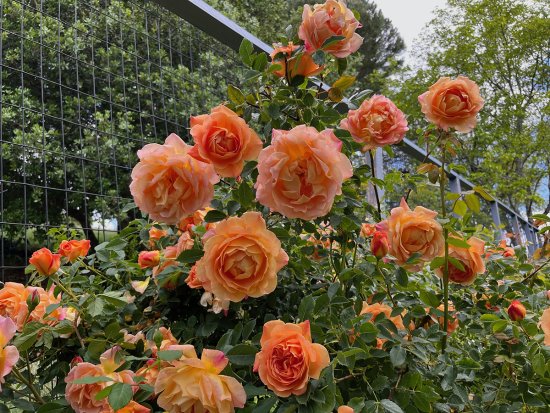 |
| Hard prune roses now for a spring flourish of flowers. |
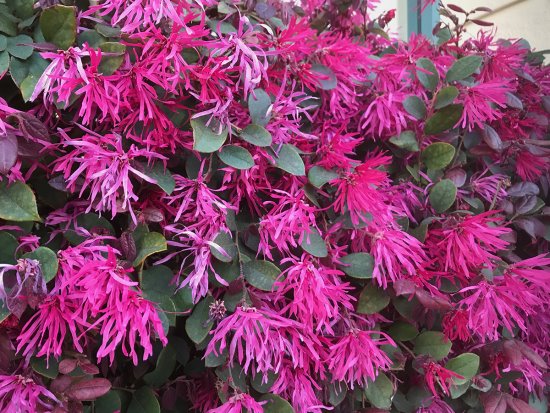 |
| For brilliant, bright pink color, plant Chinese fringe flower. |
 |
Cynthia Brian in her ocean happy place.
For more gardening advice for all seasons, check out Growing with the Goddess Gardener at
https://www.CynthiaBrian.com/books. Raised in the vineyards of Napa County, Cynthia Brian is a New York Times best-selling author, actor, radio personality, speaker, media and writing coach as well as the Founder and Executive Director of Be the Star You Are!r 501 c3. Tune into Cynthia's StarStyler Radio Broadcast at
www.StarStyleRadio.com. Her newest children's picture book, Family Forever, from the series, Stella Bella's Barnyard Adventures is available now at
https://www.CynthiaBrian.com/online-store. Hire Cynthia for writing projects, garden consults, and inspirational lectures.
Cynthia@GoddessGardener.com
https://www.CynthiaBrian.com |
|
|
|










